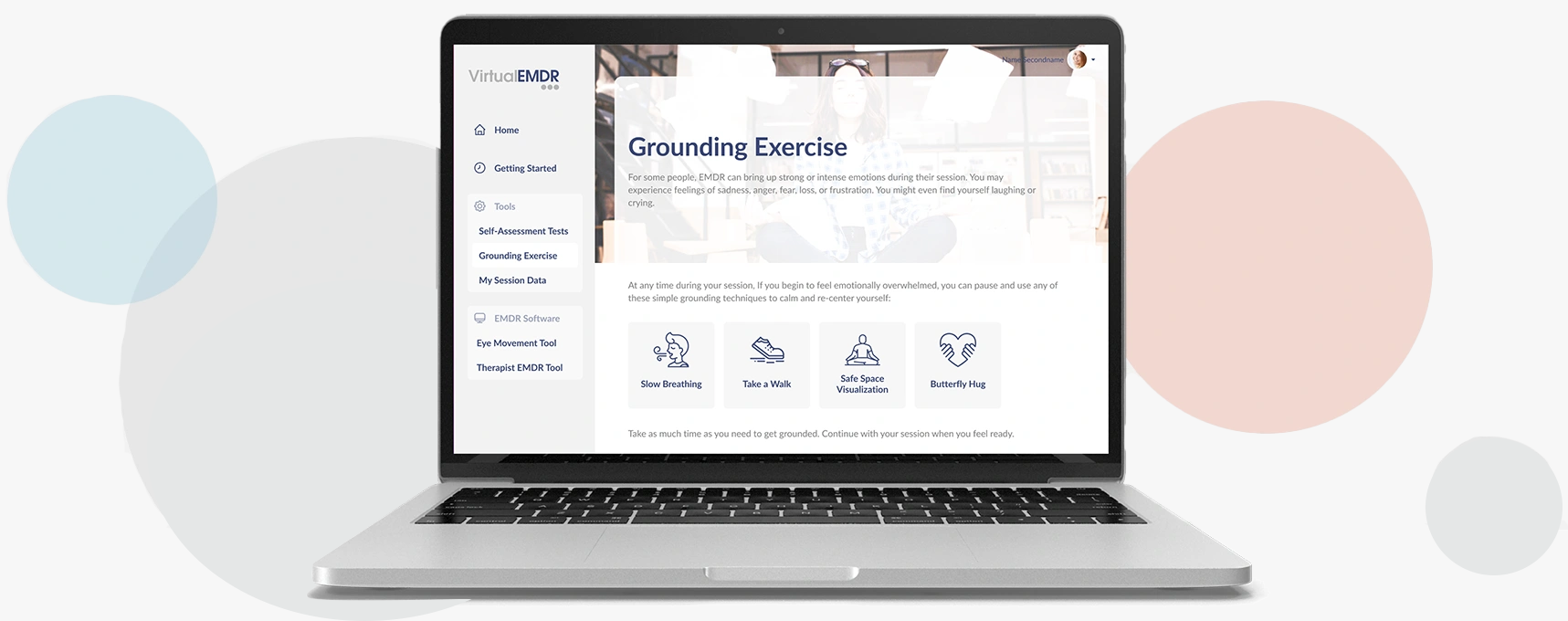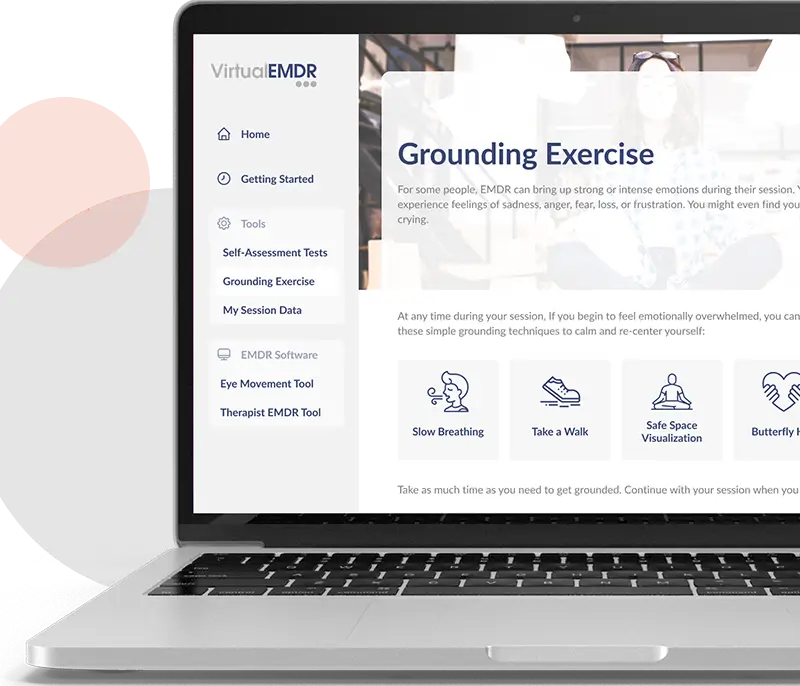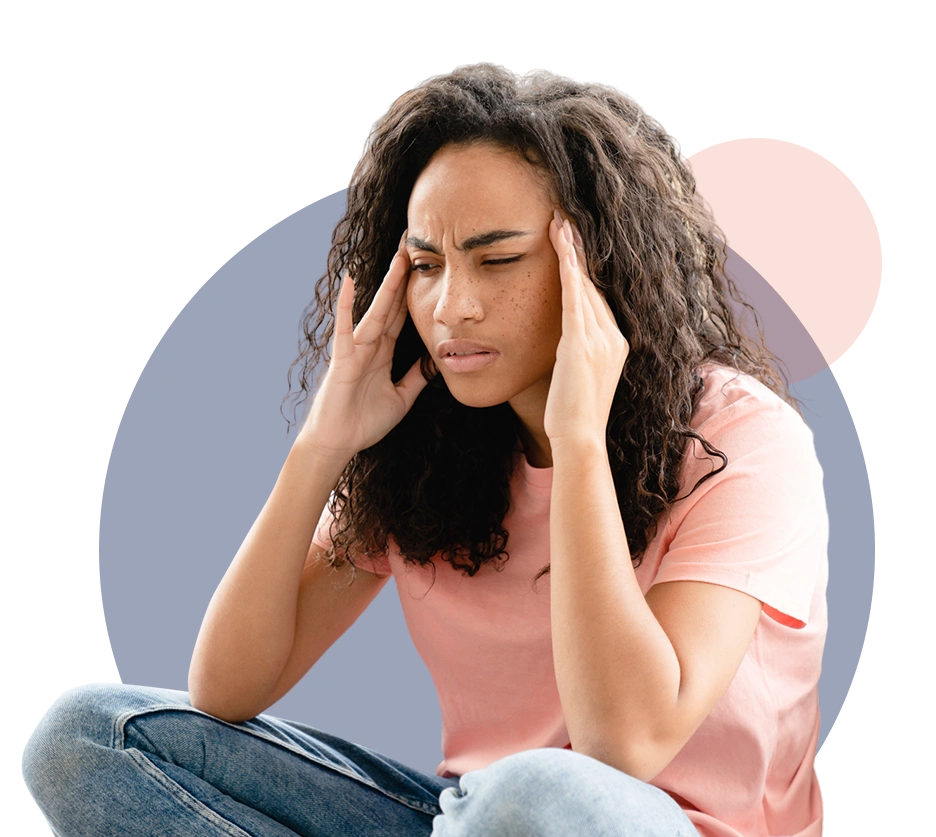What Is Stress?
Stress is a natural and adaptive reaction that occurs when you feel unable to cope with demands placed on you.
Not all stress is bad. In healthy measures,
stress
can give you strength, spur you to
take action, and heighten awareness of your surroundings.
However, living with severe or moderate stress for an extended period of time
can
affect your wellbeing physically, mentally and emotionally.
As
many as 3-in-4 people may be dealing with
unhealthy levels of Stress.
Symptoms of Stress Include:
Physical symptoms, such as Headaches, Fatigue, Digestive issues
Experiencing Anxiety, Irritability, and frequent Mood swings
Feeling overwhelmed and difficulty concentrating
Using alcohol, tobacco, drugs, or food as a coping mechanism
Stress cause significant distress and negatively impact your body and mind.
Luckily, EMDR can help you
manage and overcome your Stress.
How Does Virtual EMDR
Work on Stress?

Data from 10,000 Virtual EMDR Sessions
EMDR has been successfully used to help individuals manage and alleviate symptoms of Stress.
While EMDR was initially developed for the treatment of trauma-related conditions, its application has expanded to include various Stress-related conditions. Unlike traditional treatment, Virtual EMDR works faster, is more effective, and delivers longer-lasting results. This is because EMDR addresses the root cause of Stress, not just the symptoms.
Many people report feeling a noticeable improvement in less emotional distress, even after just one session of Virtual EMDR!
Select the Stress Protocol You Need
Virtual EMDR offers multiple EMDR Protocols to help you:
Identify specific stressors or triggers contributing to your Stress
Desensitizing the emotional charge associated with stressors
Equip yourself with Coping Skills to manage Stress
Reframe Beliefs and Negative Thoughts contributing to Stress
In each session, simply select the EMDR Protocol you need, including protocols
for
Anxiety, Depression, Addictions, and more – all included in your Virtual EMDR
unlimited
subscription!
FREE DIAGNOSTIC TEST
Unsure if You
Have Stress?
If you think you may be experiencing Stress,
take this free
test.
The Perceived Stress Scale (PSS)
was developed at Carnegie
Mellon University
and is widely used today to
measure a person’s Stress level.


# 1 ONLINE SELF-GUIDED EMDR PROGRAM
Let Virtual EMDR Help You
Overcome Stress
Simple, easy-to-use. Even if you have never done EMDR before.
Check out why Virtual EMDR is uniquely designed for you:


Frequently Asked Questions
I’m New to EMDR. Can I Use Virtual EMDR on My Own?
Yes definitely! Thousands of people have successfully used Virtual EMDR on their
own
without a
therapist, including beginners who have never done EMDR before.
Virtual EMDR is easy-to-follow with step-by-step guidance. You’ll be gently
guided
through each stage
of EMDR, through videos, illustrations, and real-life examples.
If you get stuck or need help getting started, check out our affordable Personal
Coaching.
Can EMDR Be Combined With Other Stress Treatments or Medications?
Yes, EMDR can be used in conjunction with medication and complementary therapy.
If you are currently undergoing treatment, consult your therapist or physician to
ensure a coordinated
treatment plan.
Are There Any Side Effects of EMDR for Stress?
Virtual EMDR has been used successfully by thousands of clients to treat Stress.
While many people find EMDR to be fast-acting and effective, some individuals may
experience temporary
increases in distress before improvement occurs. These
responses are typically
short-lived and are
part of the healing process.
How Long-Lasting Are the Effects of EMDR for Stress?
EMDR does not guarantee that your Stress will never resurface. However, EMDR has
been shown to be
effective in reducing Stress symptoms, and for many people,
these effects are
long-lasting.
Factors that affect effectiveness include: the nature and origin of stress, your
environment,
lifestyle changes such as exercise and relaxation practices, social
support, and
personal factors such
as resilience.
However, because EMDR addresses the root cause, rather than merely relieving
symptoms, it is often
more effective and long-lasting than other treatments.

Ready to take the
Stress Test?
The Perceived Stress Scale (PSS) was developed in 1983 at Carnegie Mellon University.
It is the classic stress assessment tool used worldwide to measure a person's stress level.

It comprises 10 questions with 5 choices.
Estimated Time to complete: 5 minutes









